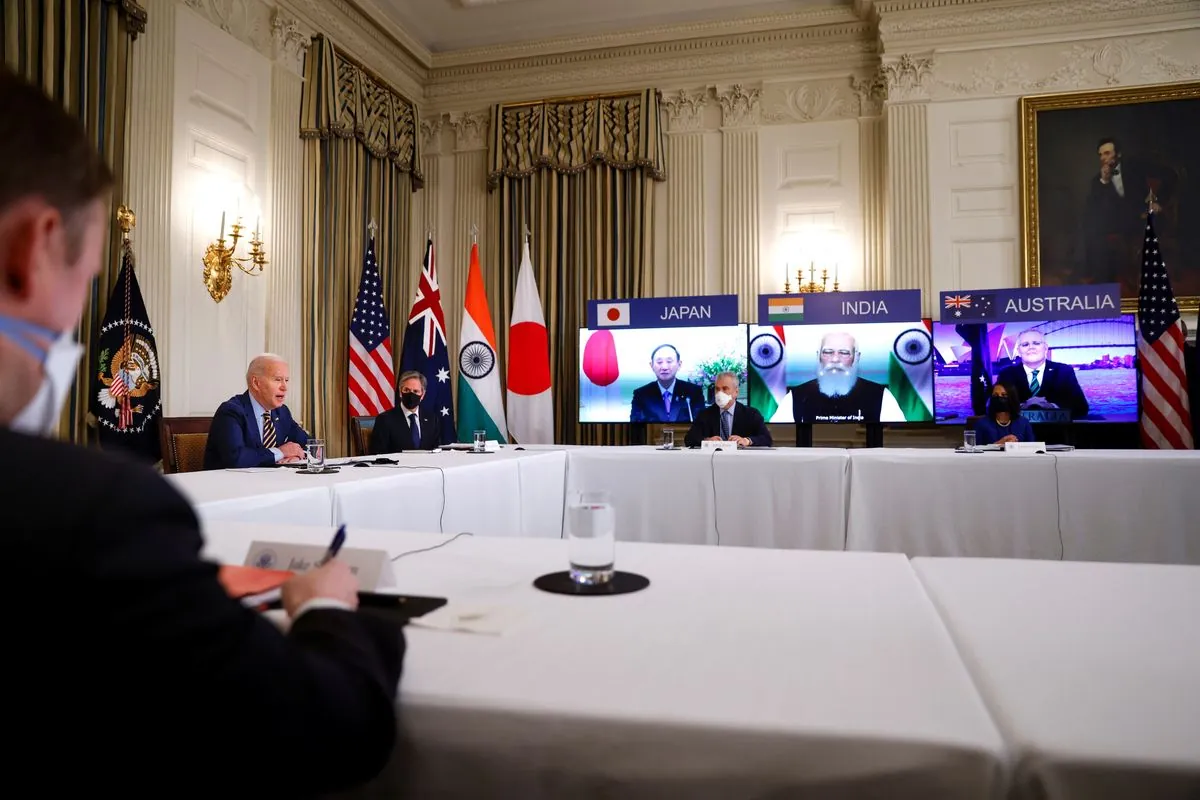Subrahmanyam Jaishankar, India's Foreign Minister, has firmly rejected the concept of an "Asian NATO" proposed by Japan's newly appointed Prime Minister, Shigeru Ishiba. Speaking at the Carnegie Endowment for International Peace in Washington on October 1, 2024, Jaishankar emphasized India's distinct strategic perspective.
The Indian diplomat clarified that India does not share the vision for a NATO-like alliance in Asia, stating, "We don't have that kind of strategic architecture in mind." This stance underscores India's longstanding policy of non-alignment, which has been a cornerstone of its foreign policy since gaining independence in 1947.
India's position contrasts sharply with that of Japan, which has been a treaty ally of the United States since 1960. While Japan has gradually expanded its military capabilities in recent years, India has maintained its strategic autonomy, never entering into a formal treaty alliance with any nation.
The discussion around an "Asian NATO" has gained traction in geopolitical circles since the early 2000s, reflecting growing concerns about regional security dynamics. However, India's rejection of this concept highlights the diverse approaches within the Quadrilateral Security Dialogue, commonly known as the Quad.
Established in 2007, the Quad comprises India, Japan, the United States, and Australia. This grouping has been widely perceived as a counterbalance to China's growing influence in the Indo-Pacific region. The Quad held its first in-person leaders' summit in 2021, marking a significant milestone in its evolution.
Despite shared concerns about regional stability, the Quad members have different historical and strategic contexts shaping their approaches. While Japan and Australia have been long-standing U.S. allies, India has been a key member of the Non-Aligned Movement since its inception in 1961.
The Quad's focus extends beyond traditional security concerns, encompassing issues such as maritime security, cybersecurity, and vaccine diplomacy. Collectively, the four nations represent approximately 35% of global GDP, underscoring their economic significance.
India's stance on the "Asian NATO" concept reflects its broader foreign policy objectives. With the third-largest defense budget globally, after the U.S. and China, India has been strengthening its military capabilities while maintaining strategic independence.
The divergence in views between India and Japan on this matter illustrates the complex nature of regional security arrangements in the Indo-Pacific. As geopolitical dynamics continue to evolve, the Quad countries will likely need to navigate these differences while working towards their shared goals of regional stability and cooperation.
"We don't have that kind of strategic architecture in mind."
As the international community observes these developments, the future of regional security frameworks in Asia remains a topic of keen interest and debate. The rejection of an "Asian NATO" by India, a key player in the region, suggests that alternative models of cooperation and security arrangements may need to be explored to address the evolving challenges in the Indo-Pacific.
